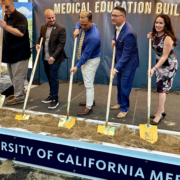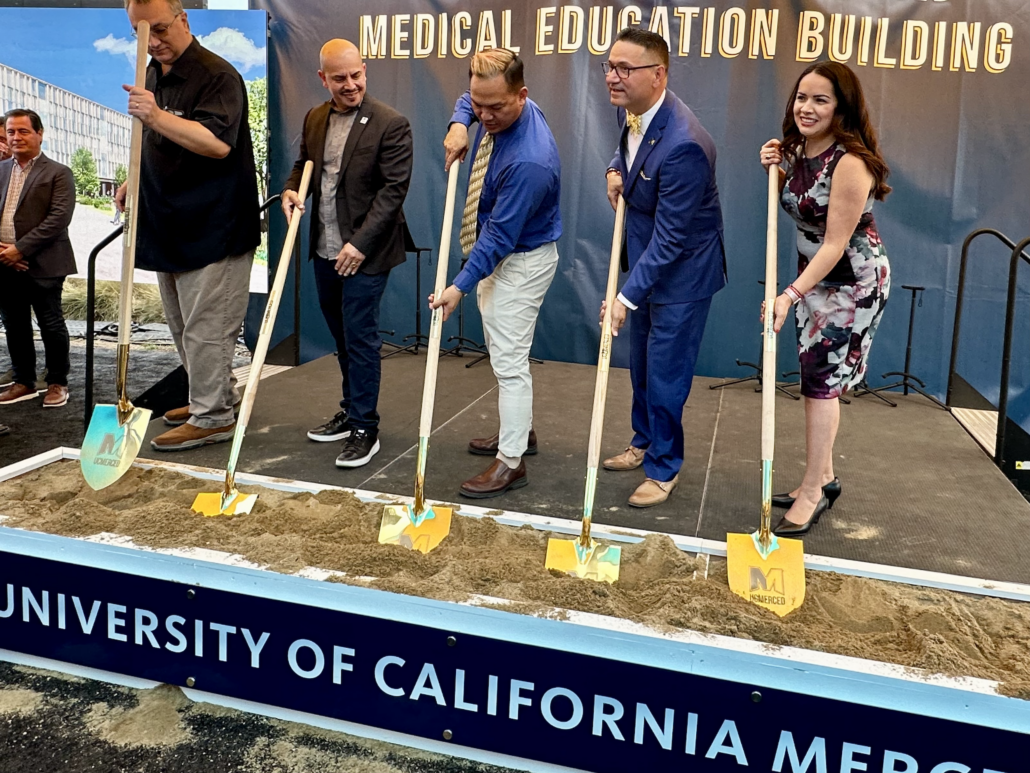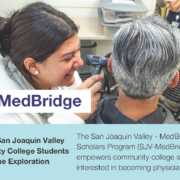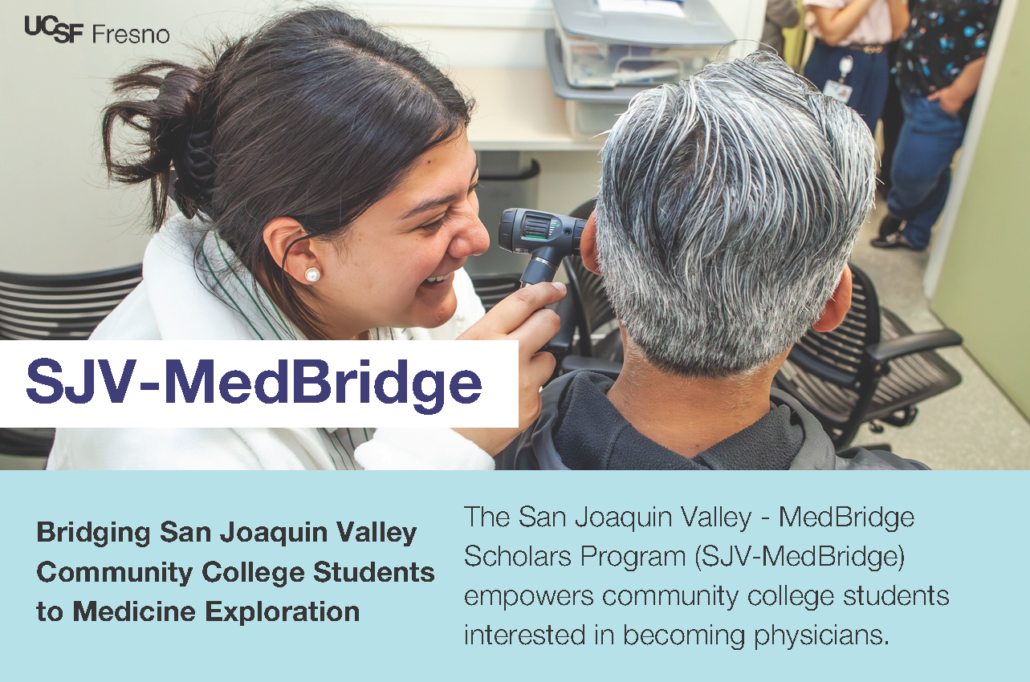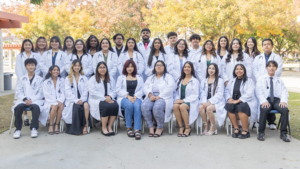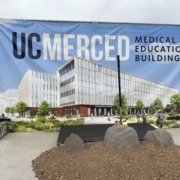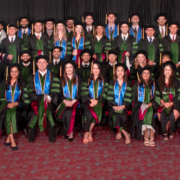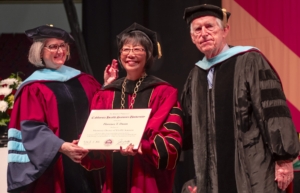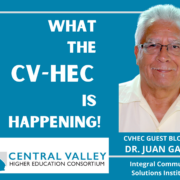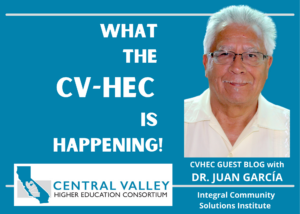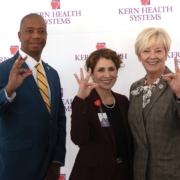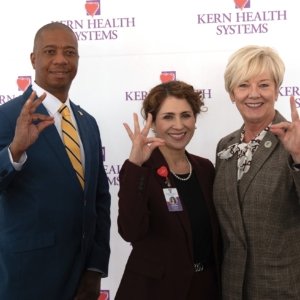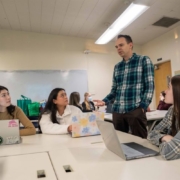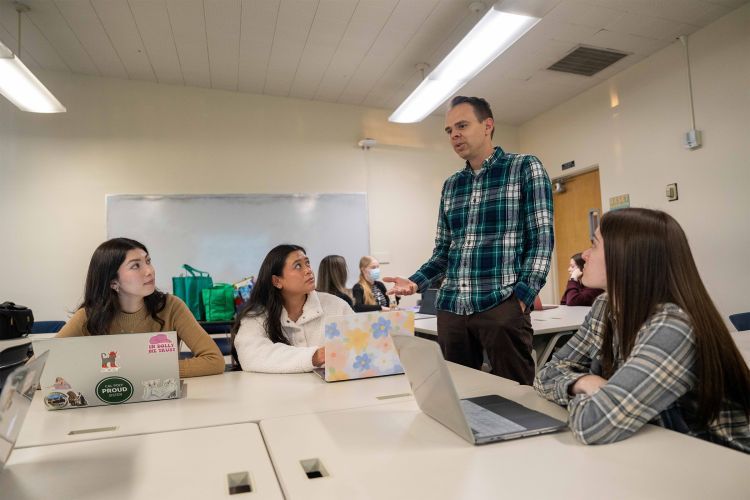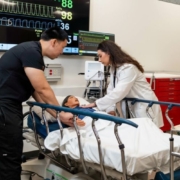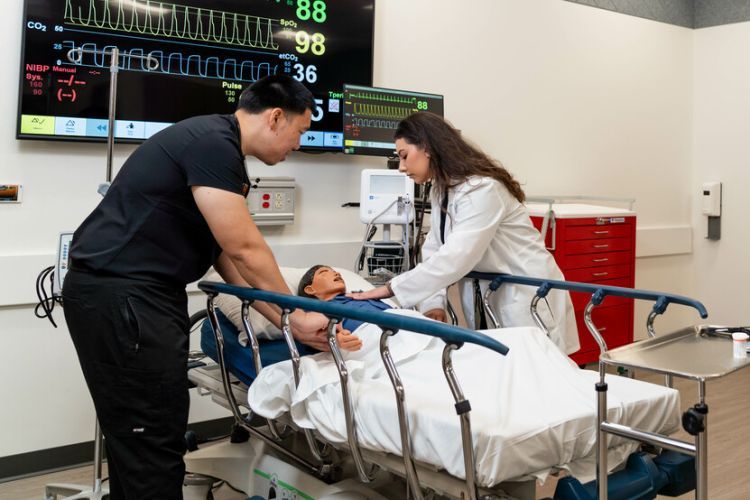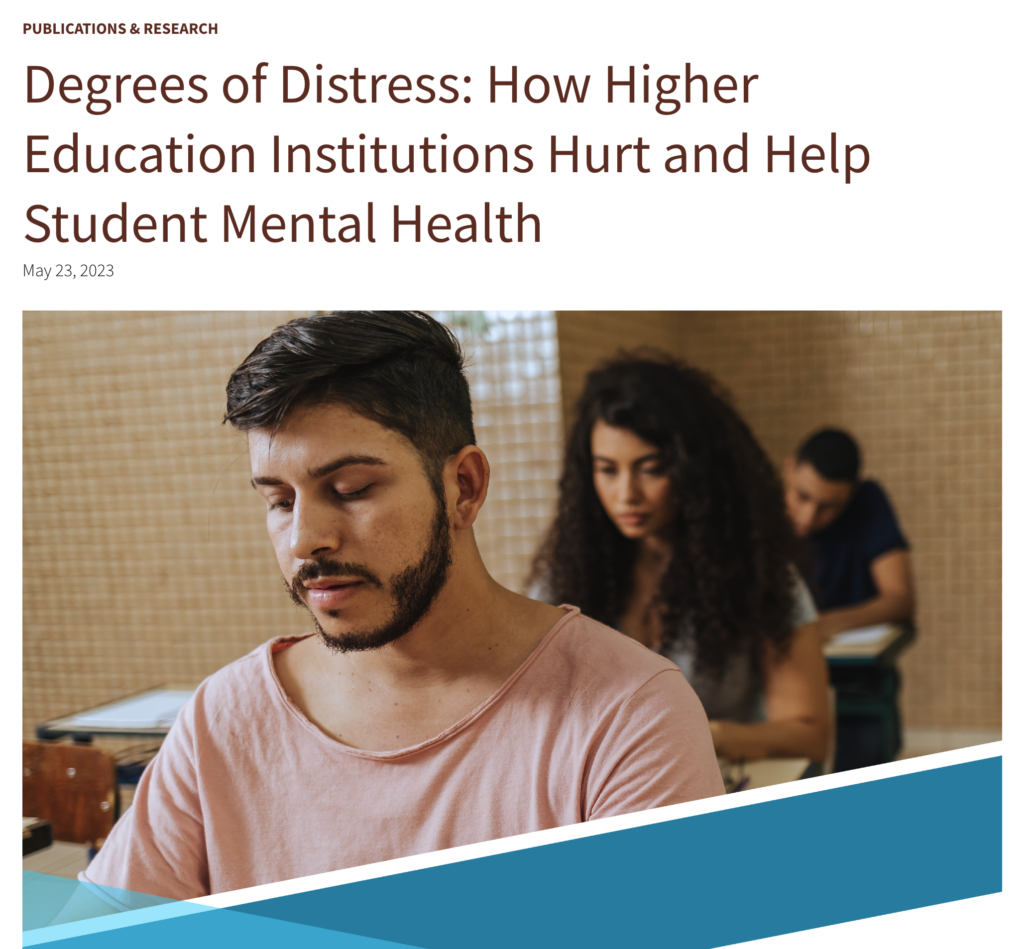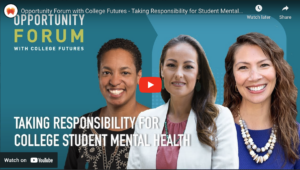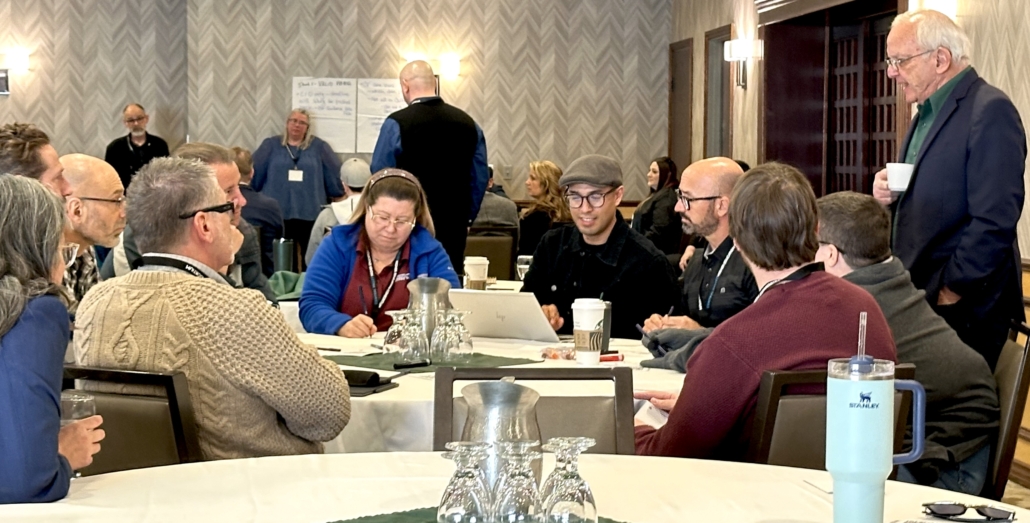CVHEC DIRECTOR’S MESSAGE (May 2024): Medical Doctor degrees in the Central Valley
Among the many dignitaries participating in the historic UC Merced Medical Education Building groundbreaking May 14 with Chancellor Juan Sánchez Muñoz were Dr. Ivan Gomez of UCSF Fresno, Dr. Angel Reyna, president of Madera College, Dr. Kenny Iban of UCSF Fresno and Dr. Rosa Manzo of UC Merced who will be the first faculty member hired for the B.S. to M.D. Pathway, SJV PRIME+ Program.
Special edition: medical education
CVHEC members delivering medical doctor degrees to
produce more healthcare professionals for our region
Greetings CVHEC friends and colleagues!
First, let me congratulate our consortium members – 28 colleges and districts across the Central Valley — for completing another spring semester highlighted by the always joyous commencement season. It has been delightful seeing all the media reports on your graduations.
Now, it is my pleasure to present you this month’s special issue of the Central Valley Higher Education Consortium e-Newsletter that focuses on the universities and medical schools in our membership delivering medical education and training leading to medical doctor degrees that will counter the shortage of healthcare professionals in our Central Valley region.
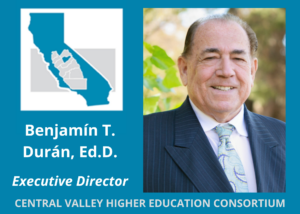 Our three main stories feature California Health Sciences University (CHSU), the University of San Francisco School of Medicine, Fresno Campus, (UCSF Fresno) and the University of California, Merced.
Our three main stories feature California Health Sciences University (CHSU), the University of San Francisco School of Medicine, Fresno Campus, (UCSF Fresno) and the University of California, Merced.
In the CHSU article, you will learn about the newest medical school in the Central Valley that just celebrated its first commencement, graduating 66 new Doctors of Osteopathic Medicine. Established in 2020, and based in Clovis, the medical school – now with 500 students – recently received a full seven-year accreditation. And fittingly, our CVHEC board member, Flo Dunn, was recognized with an honorary doctorate degree for her service as the CHSU founding and current president. Congratulations Dr. Dunn!
You will also read about the exciting initiatives being delivered by the University of California San Francisco Fresno campus creating pathways to the medical field for students in the Central Valley including an update on the California Medical Scholars Program. Among those initiatives are the new SJV-MedBridge pathway for community college students, the recently launched SJV PRIME+ Baccalaureate-to-MD pathway in collaboration with UC Merced, UCSF Fresno residency and fellowship training programs, and UCSF Fresno’s robust continuing medical education portfolio as well as its efforts in mental healthcare training.
In the UC Merced contribution, the medical education program has developed over the years to help breach the shortage of physicians and other health care professionals in the Central Valley with its most recent exciting development: the groundbreaking for the new Medical Education Building held earlier this month. Slated for completion in fall 2026, the new facility will house the SJV PRIME+ Baccalaureate-to-MD pathway mentioned above in addition to other efforts UC Merced is pursuing to create cohorts of students and direct many of them into the medical field in the region to help address the shortage of medical professionals.
And, as National Mental Health Awareness Month comes to a close this week, we are pleased to present a community perspective in this medical education movement with our monthly “What the CV-HEC is Happening Blog” by Juan Garcia, Ph.D, executive director of Integral Community Solutions Institute (known as Community Counseling Services). Dr. Garcia articulates this non-profit organization’s work addressing mental healthcare in underrepresented communities in partnership with CVHEC members UCSF Fresno and Fresno State through the Bienestar Wellness Early Intervention Program.
In closing, we extend a special thank you to West Hills Community College District Chancellor Kristin Clarke, Taft Community College Superintendent/ President Brock McMurray and Porterville College President Claudia Habib for their service to the students of the Central Valley during their tenure as higher education leaders in the region. Chancellor Clark and President McMurray will be retiring and entering the next phase of their lives while Dr. Habib will be taking the presidency at Ventura Community College. We wish them all well. They will always be part of the CVHEC family.
Thanks again to you and your institutions that have brought statewide and national attention to the Central Valley.
We look forward to meeting and welcoming new CEOs in the region at our next CVHEC Board of Directors meeting tentatively set for August when we also will introduce new intersegmental regional initiatives we will be launching in the near future.
Thank you for reviewing this special edition showcasing some of our CVHEC member institutions efforts combatting the historical shortage of health professionals in the Central Valley. Have a great summer 2024!

